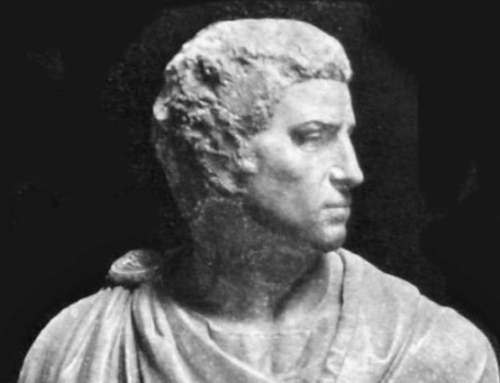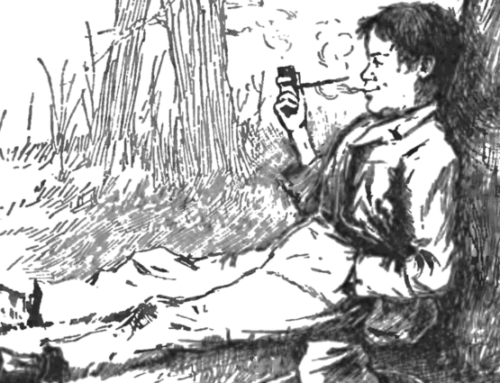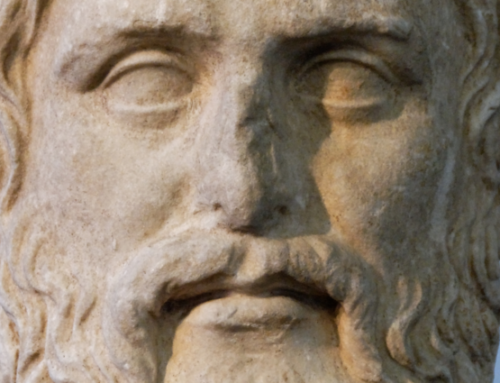The American Founders considered the cultivation of virtue essential to the survival of the republic. The following is excerpted from Franklin’s Autobiography, on which he worked between 1771 and 1790, but which was not published in English in its complete form until 1868. Below, we have maintained faithfulness to the original text.
 It was about this time that I conceiv’d the bold and arduous Project of arriving at moral Perfection. I wish’d to live without committing any Fault at any time; I would conquer all that either Natural Inclination, Custom, or Company might lead me into. As I knew, or thought I knew, what was right and wrong, I did not see why I might not allways do the one and avoid the other. But I soon found I had undertaken a Task of more Difficulty than I had imagined. While my Attention was taken up in guarding against one Fault, I was often surpris’d by another. Habit took the Advantage of Inattention. Inclination was sometimes too strong for Reason. I concluded at length, that the mere speculative Conviction that it was our Interest to be completely virtuous, was not sufficient to prevent our Slipping, and that the contrary Habits must be broken and good ones acquired and established, before we can have any Dependence on a steady uniform Rectitude of Conduct. For this purpose I therefore contriv’d the following Method.
It was about this time that I conceiv’d the bold and arduous Project of arriving at moral Perfection. I wish’d to live without committing any Fault at any time; I would conquer all that either Natural Inclination, Custom, or Company might lead me into. As I knew, or thought I knew, what was right and wrong, I did not see why I might not allways do the one and avoid the other. But I soon found I had undertaken a Task of more Difficulty than I had imagined. While my Attention was taken up in guarding against one Fault, I was often surpris’d by another. Habit took the Advantage of Inattention. Inclination was sometimes too strong for Reason. I concluded at length, that the mere speculative Conviction that it was our Interest to be completely virtuous, was not sufficient to prevent our Slipping, and that the contrary Habits must be broken and good ones acquired and established, before we can have any Dependence on a steady uniform Rectitude of Conduct. For this purpose I therefore contriv’d the following Method.
In the various Enumerations of the moral Virtues I had met with in my Reading, I found the Catalogue more or less numerous, as different Writers included more or fewer Ideas under the same Name. Temperance, for Example, was by the some confin’d to Eating & Drinking, while by others it was extended to mean the moderating every other Pleasure, Appetite, Inclination or Passion, bodily or mental, even to our Avarice & Ambition. I propos’d to myself, for the sake of Clearness, to use rather more Names with fewer Ideas annex’d to each, than a few Names with more Ideas; and I included under Thirteen Names of Virtues all that at that time occurr’d to me as necessary or desirable, and annex’d to each a short Precept, which fully express’d the Extent I gave to its Meaning.
These Names of Virtues with their Precepts were
- Temperance: Eat not to Dullness. Drink not to Elevation.
- Silence: Speak not but what may benefit others or yourself. Avoid trifling Conversation.
- Order: Let all your Things have their Places. Let each Part of your Business have its Time.
- Resolution: Resolve to perform what you ought. Perform without fail what you resolve.
- Frugality: Make no Expense but to do good to others or yourself: i.e. Waste nothing.
- Industry: Lose no Time. Be always employ’d in something useful. Cut off all unnecessary Actions.
- Sincerity: Use no hurtful Deceit. Think innocently and justly; and, if you speak, speak accordingly.
- Justice: Wrong none, by doing Injuries or omitting the Benefits that are your Duty.
- Moderation: Avoid Extremes. Forbear resenting Injuries so much as you think they deserve.
- Cleanliness: Tolerate no Uncleanness in Body, Clothes or Habitation.
- Tranquillity: Be not disturbed at Trifles, or at Accidents common or unavoidable.
- Chastity: Rarely use Venery but for Health or Offspring; Never to Dullness, Weakness, or the Injury of your own or another’s Peace or Reputation.
- Humility: Imitate Jesus and Socrates.
My Intention being to acquire the Habitude of all these Virtues, I judg’d it would be well not to distract my Attention by attempting the whole at once, but to fix it on one of them at a time, and when I should be Master of that, then to proceed to another, and so on till I should have gone thro’ the thirteen. And as the previous Acquisition of some might facilitate the Acquisition of certain others, I arrang’d them with that View as they stand above. Temperance first, as it tends to procure that Coolness & Clearness of Head, which is so necessary where constant Vigilance was to be kept up, and Guard maintained, against the unremitting Attraction of ancient Habits, and the Force of perpetual Temptations. This being acquir’d & establish’d, Silence would be more easy, and my Desire being to gain Knowledge at the same time that I improv’d in Virtue and considering that in Conversation it was obtain’d rather by the use of the Ears than of the Tongue, & therefore wishing to break a Habit I was getting into of Prattling, Punning & Joking, which only made me acceptable to trifling Company, I gave Silence the second Place. This, and the next, Order, I expected would allow me more Time for attending to my Project and my Studies; Resolution, once become habitual, would keep me firm in my Endeavors to obtain all the subsequent Virtues; Frugality & Industry, by freeing me from my remaining Debt, & producing Affluence & Independence, would make more easy the Practice of Sincerity and Justice, &c &c. Conceiving then that agreeable to the Advice of Pythagoras in his Golden Verses daily Examination would be necessary, I contriv’d the following Method for conducting that Examination.
I made a little Book in which I allotted a Page for each of the Virtues. I rul’d each Page with red Ink, so as to have seven Columns, one for each Day of the Week, marking each Column with a Letter for the Day. I cross’d these Columns with thirteen red Lines, marking the Beginning of each Line with the first Letter of one of the Virtues, on which Line & in its proper Column I might mark by a little black Spot every Fault I found upon Examination to have been committed respecting that Virtue upon that Day.
I determined to give a Week’s strict Attention to each of the Virtues successively. Thus in the first Week my great Guard was to avoid every the least Offense against Temperance, leaving the other Virtues to their ordinary Chance, only marking every Evening the Faults of the Day. Thus if in the first Week I could keep my first Line marked T clear of Spots, I suppos’d the Habit of that Virtue so much strengthen’d and its opposite weaken’d, that I might venture extending my Attention to include the next, and for the following Week keep both Lines clear of Spots. Proceeding thus to the last, I could go thro’ a Course complete in Thirteen Weeks, and four Courses in a Year. And like him who having a Garden to weed, does not attempt to eradicate all the bad Herbs at once, which would exceed his Reach and his Strength, but works on one of the Beds at a time, & having accomplish’d the first proceeds to a Second; so I should have, (I hoped) the encouraging Pleasure of seeing on my Pages the Progress I made in Virtue, by clearing successively my Lines of their Spots, till in the End by a Number of Courses, I should be happy in viewing a clean Book after a thirteen Weeks, daily Examination.
The Precept of Order requiring that every Part of my Business should have its allotted Time, one Page in my little Book contain’d the following Scheme of Employment for the Twenty-four Hours of a natural Day,
The Morning Question, What Good shall I do this Day?
5, 6, and 7: Rise, wash, and address Powerful Goodness; Contrive Day’s Business and take the Resolution of the Day; prosecute the present Study; and breakfast?
8: Work
9: Work
10: Work
11: Work
12 and 1: Read, or overlook my Accounts and dine
2: Work
3: Work
4: Work
5: Work
6 and 7: Put Things in their Places, Supper, Music, or Diversion, or Conversation,
8 and 9: Examination of the Day
Evening Question, What Good have I done to day?
10
11
12
1: Sleep.
2: Sleep
3: Sleep
4: Sleep
I enter’d upon the Execution of this Plan for Self Examination, and continu’d it with occasional Intermissions for some time. I was surpris’d to find myself so much fuller of Faults than I had imagined, but I had the Satisfaction of seeing them diminish. To avoid the Trouble of renewing now & then my little Book, which by scraping out the Marks on the Paper of old Faults, to make room for new Ones in a new Course, became full of Holes: I transferr’d my Tables & Precepts to the Ivory Leaves of a Memorandum Book, on which the Lines were drawn with red Ink that made a durable Stain, and on those Lines I mark’d my Faults with a black Lead Pencil, which Marks I could easily wipe out with a wet Sponge.
The Imaginative Conservative applies the principle of appreciation to the discussion of culture and politics—we approach dialogue with magnanimity rather than with mere civility. Will you help us remain a refreshing oasis in the increasingly contentious arena of modern discourse? Please consider donating now.
The featured image is courtesy of Pixabay.







Leave A Comment